Legal Unit
Greenpeace International’s Legal Unit consists of a team of specialised lawyers that provide independent legal advice on:
- strategic litigation to advance the fight against environmental destruction
- risk management and strategic defence of campaigns, the organisation and staff
- advocacy efforts to strengthen environmental and human rights
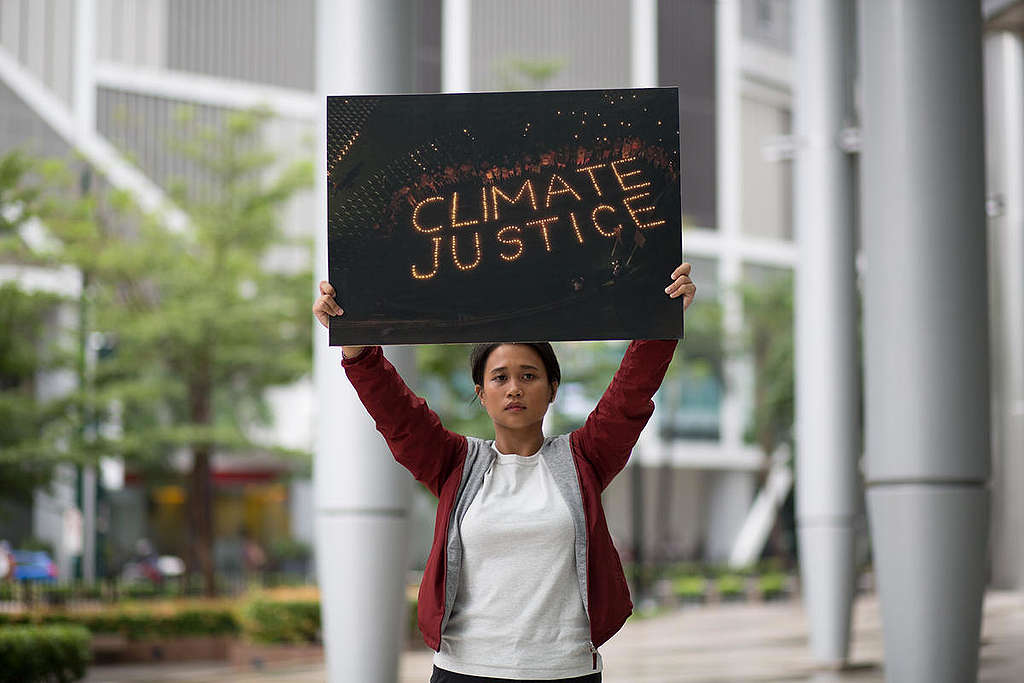
We share legal knowledge with other lawyers who work for the independent Greenpeace organisations across the globe, on such issues as environmental law and freedom of expression cases involving Greenpeace activists or organisations.
Please be aware that scammers have been offering paid-for training programmes that allegedly offer a path to employment and include members of the Greenpeace International Legal Unit as trainers. We are not offering any paid public training programmes. Please do not engage with these scammers and contact Greenpeace International with any questions via [email protected]. Thank you for your vigilance while we attempt to resolve this matter.
Who we are
Kristin Casper, General Counsel
Attorney-at-law
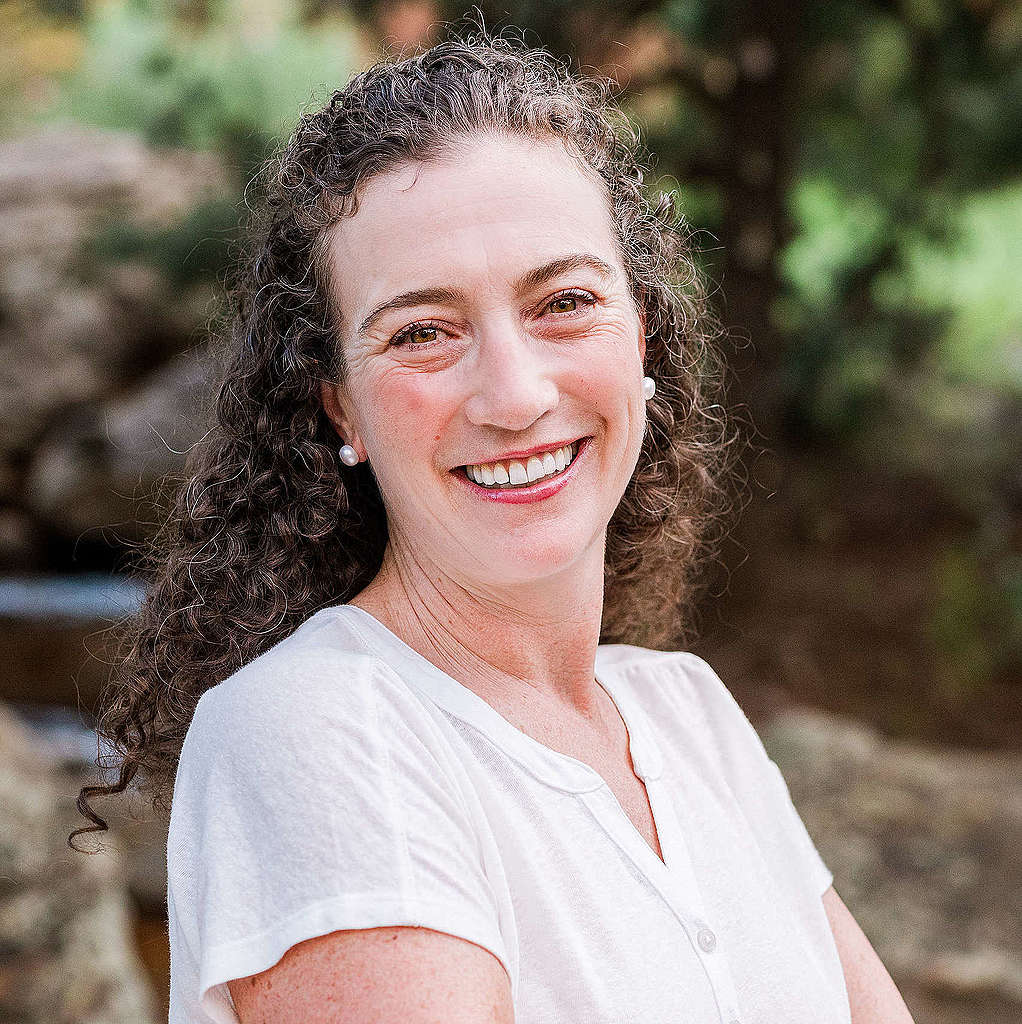
Kristin Casper is General Counsel at Greenpeace International. Kristin leads a team that provides independent legal advice on various matters, including strategic defence and litigation, organisational, and governance matters. For the past 15 years, she has been developing and implementing cutting-edge legal strategies to hold governments and corporations accountable for the climate emergency. Kristin has been a part of many successful efforts demanding urgent and ambitious climate action, the rapid transition to renewable energy, and the protection of the right to a healthy environment. Kristin is a registered attorney in the U.S. state of Colorado. She graduated from the University of New Mexico School of Law in 2009 with a Juris Doctor degree and a certificate in natural resources and environmental law.
Michelle Jonker-Argueta, Senior Legal Counsel Strategic Litigation
Attorney-at-law
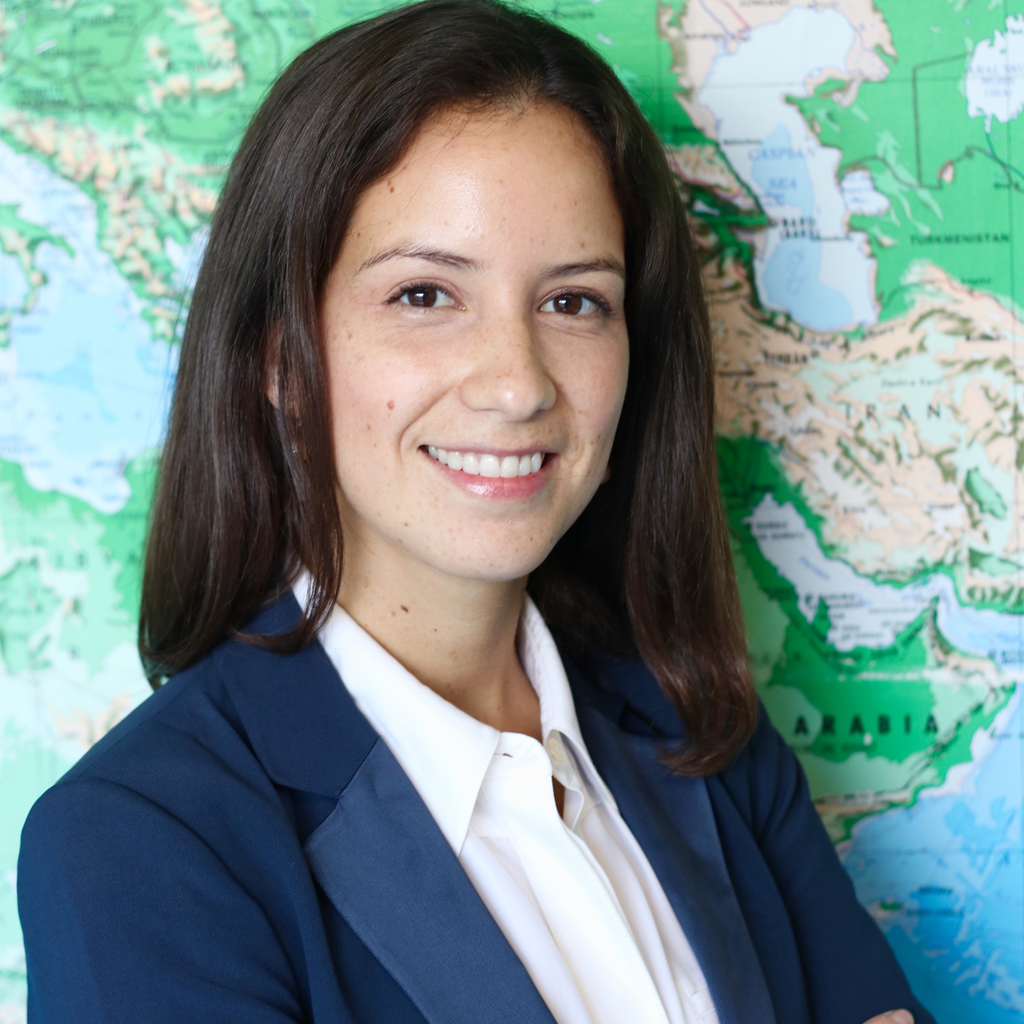
Michelle supervises and oversees Greenpeace International’s Strategic Litigation work. Michelle advises on the development and implementation of legal strategies to hold governments and corporations accountable for climate change, biodiversity loss, and resulting human rights violations. Prior to joining Greenpeace International, Michelle worked in international human rights, international criminal law and asylum law. She also has experience in EU competition law. Michelle is an attorney registered in the New York Bar and holds a Juris Doctor from Yale Law School. She is also a Dutch lawyer.
Danilo Garrido Alves, Legal Counsel Campaigns
Attorney-at-law
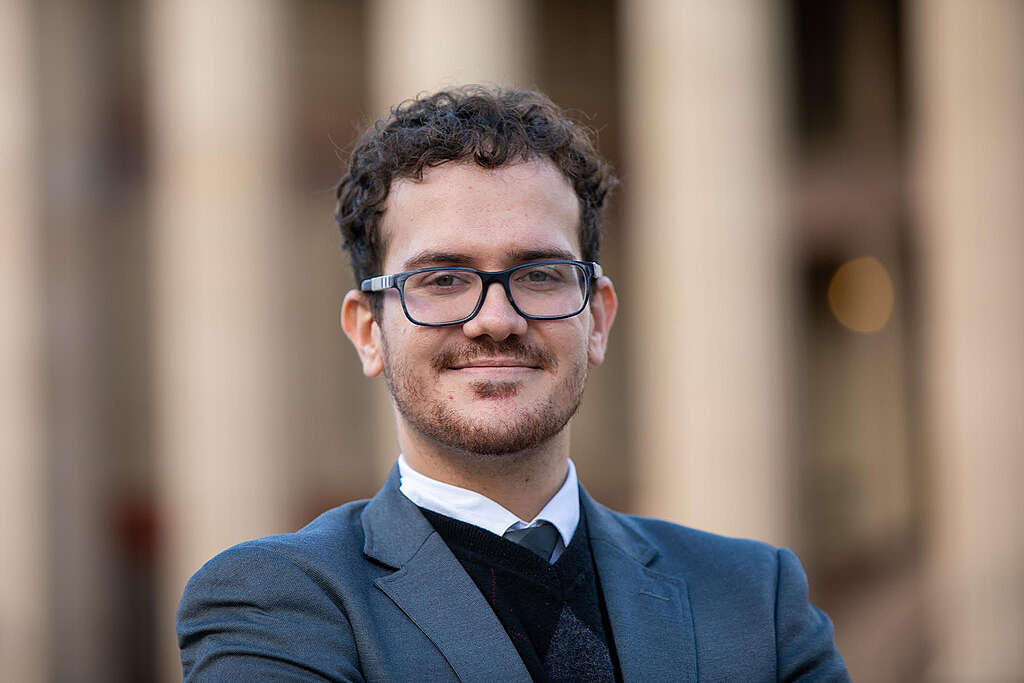
Danilo advises biodiversity campaigns focused on forests, food, and other matters. Prior to joining Greenpeace, he acted on behalf of victims of corporate environmental and human rights abuses in litigation before UK and EU courts; coordinated the Judges and Prosecutors segment of the 8th World Water Forum; taught public international law at the University of Oxford; and clerked at the International Court of Justice as one of the first three Global South persons sponsored by a UN General Assembly Trust Fund. Danilo holds an LL.M. in International Law from the University of Cambridge, an LL.B. from the University of Brasília, and is currently a DPhil in Law candidate at the University of Oxford. Danilo is a member of both the Brazilian and Portuguese Bars. He speaks English, Portuguese and Spanish, and has working knowledge of German and French.
Louise Fournier, Legal Counsel Climate Justice & Liability
Attorney-at-law
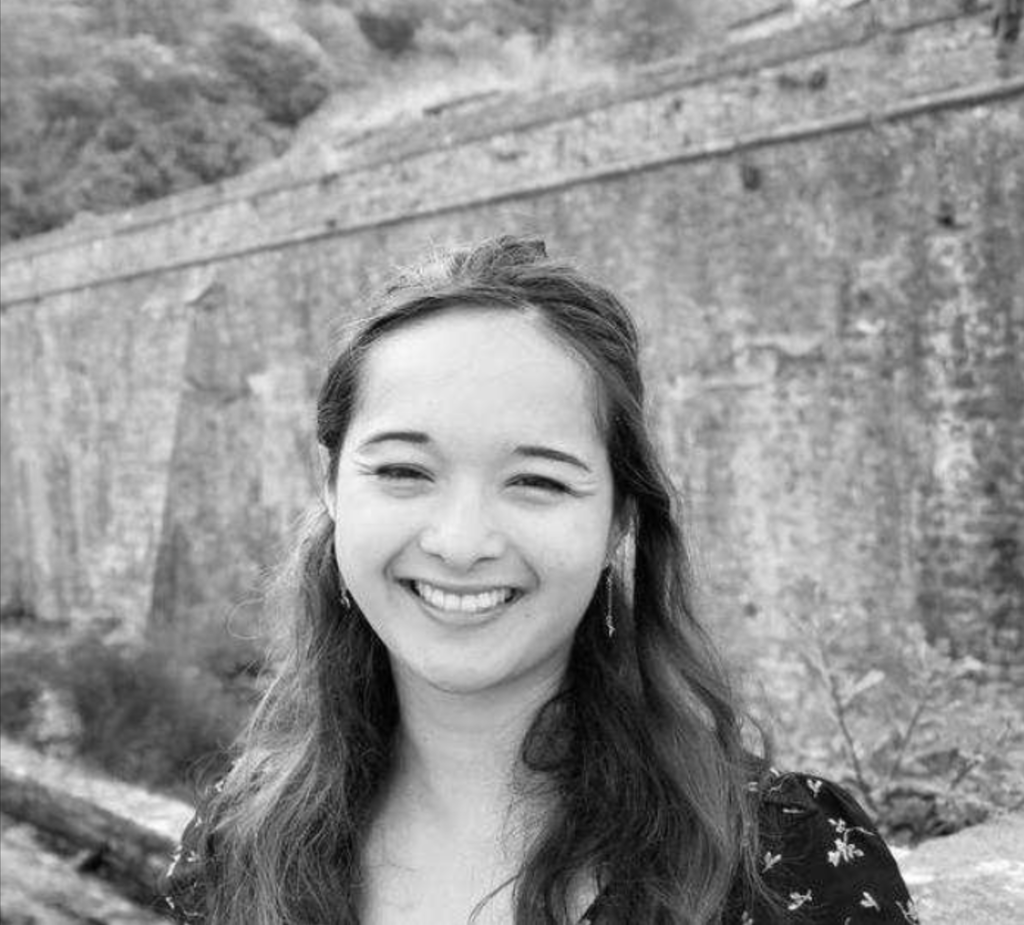
Louise leads Greenpeace’s climate justice and liability strategies. Louise has a keen interest in movement lawyering, corporate accountability and human rights. Prior to joining Greenpeace International, Louise interned at the UNFCCC Legal Affairs and worked in land claims, ancestral and treaty rights and environmental litigation for Indigenous Peoples of northern Quebec, Canada. Louise is on the advisory panel of the Disability-Inclusive Climate Action Research Program. Louise is an attorney registered in the New York Bar and holds a LLM degree in international environmental law and climate change law from the University of Edinburgh and a BCL and LLB from McGill University. She speaks English, French, and Mandarin.
Maria Alejandra Serra, Legal Counsel, Climate Specialist, Climate Justice & Liability
Attorney-at-law
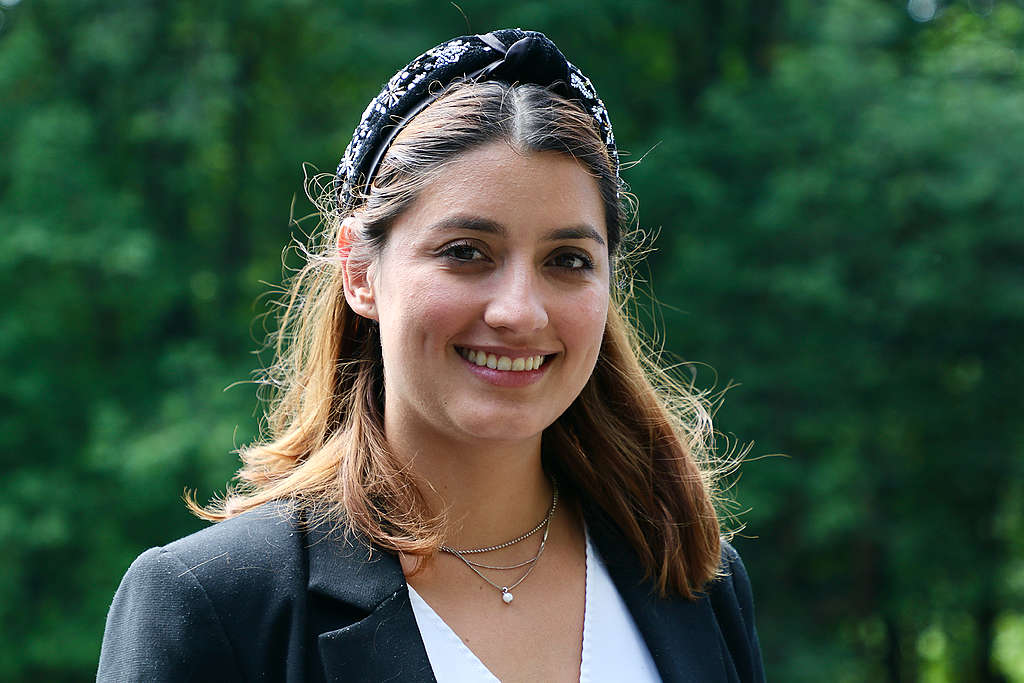
Maria Alejandra supports Greenpeace’s Climate Justice and Liability Campaign, advising on the development of community-centred strategic litigation, against States and corporations for their contribution to climate change, biodiversity loss and resulting human rights violations. Prior to joining Greenpeace International, Maria Alejandra worked in constitutional law, human rights and labour law compliance in Colombia. Maria Alejandra holds a degree in law from Icesi University in Cali, Colombia and an holds an LL.M. degree in International Law and Human Rights (Environmental Law Specialisation) from Tilburg University in the Netherlands. She is a registered Attorney.
Richard Brown, Legal Counsel Finance

Richard advises campaigns on finance-based legal and regulatory interventions and related strategies to hold financial institutions and corporations to account for climate change and biodiversity loss. Prior to joining Greenpeace International, he was for many years a partner in various global law firms specialising in international corporate finance, capital markets and financial regulatory matters. He graduated with a degree in law from the University of Cambridge and is admitted as solicitor (England and Wales).
Daniel Simons, Senior Legal Counsel Strategic Defence
Attorney-at-law
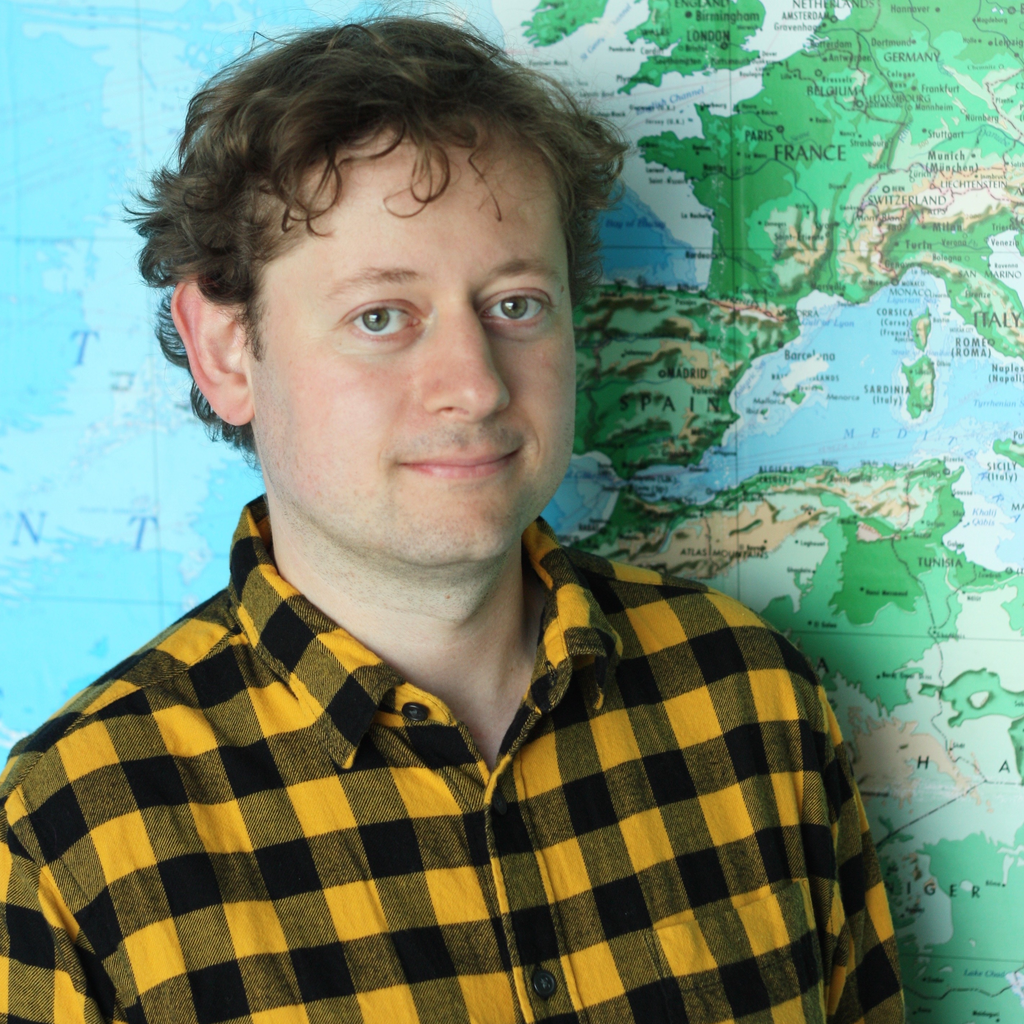
Daniel oversees the Legal Unit’s strategic defence work, which includes assessing risks of actions, investigations and publications, handling incoming campaign-related litigations, and protecting the rights that the organisation needs to play its watchdog role, such as freedom of expression, association and assembly. Daniel has served in the Legal Unit, with a brief hiatus, since 2008. His other experience includes working as a legal officer at Article 19, the global campaign for freedom of expression, and as legal officer freedom of assembly, expression and information at the Open Society Justice Initiative. Daniel holds degrees in law from the University of Amsterdam and Columbia University. He has been a member of the Bar of New York since 2005 and serves on the Board of Directors of the Arena for Journalism in Europe and the Article 20 Network. He is based at the Copenhagen office of Greenpeace Nordic.
Amy Jacobsen, Legal Counsel Communications
Attorney-at-law
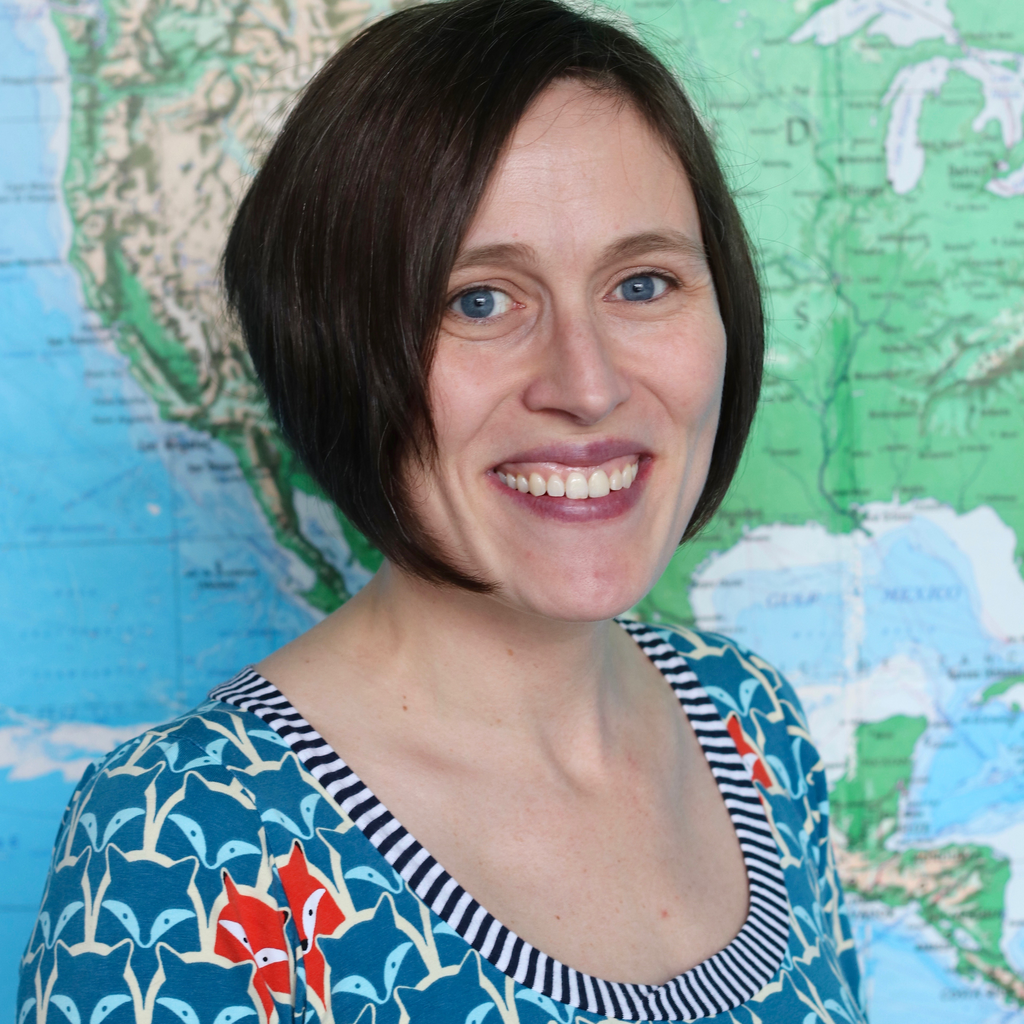
Amy provides independent, integrated communications-related legal advice and supports strategic defence efforts. She joined Greenpeace International in February 2018 advising on freedom of expression and media-law related issues, and she has provided support to a variety of campaigns, including e.g., the food, forest, and finance campaigns. Her prior experience includes providing counsel to CIA torture victim Abu Zubaydah, assisting the prosecutor’s office at the UN ICTR, and litigating government contracts at a Washington, D.C. law firm. She has been consulted for her expertise, among others, by the Wikileaks media organisation and the Open Society Justice Initiative. Amy received her J.D. from Duke University and her Ph.D. from the University of Copenhagen, Faculty of Law. She is admitted to the NY and California bars, and has held a U.S. Top Secret security clearance. She is based in the Copenhagen office of Greenpeace Nordic.
Michel Uiterwaal, Legal Counsel Campaigns
Attorney-at-law (advocaat, the Netherlands)
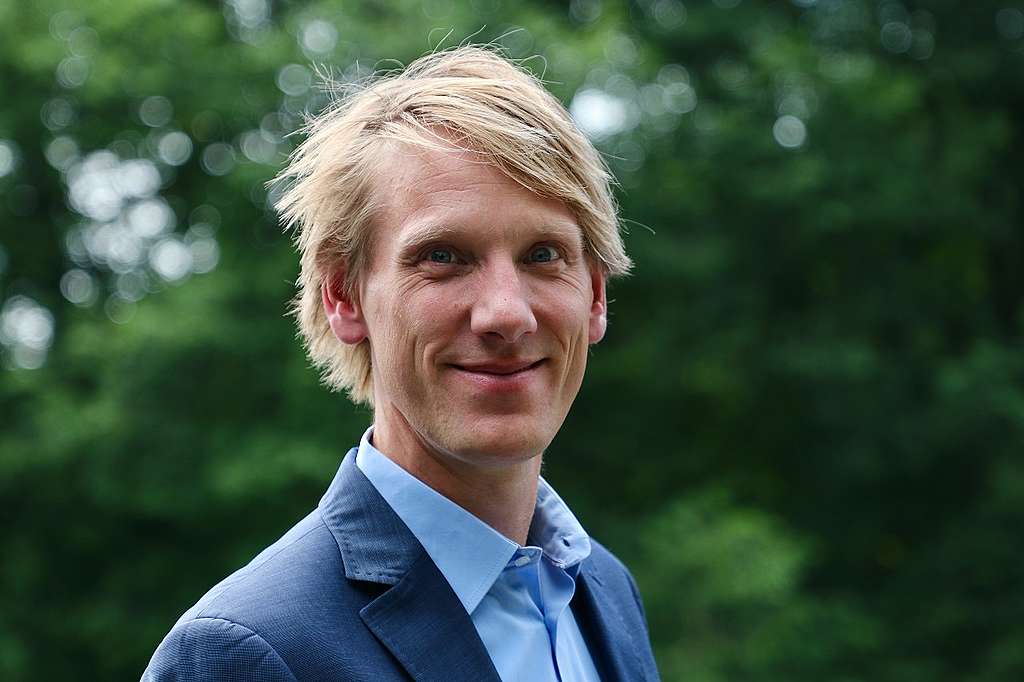
Michel advises both on proactive legal strategies and strategic defence, specifically for the oceans campaign.
He started his career with a leading Amsterdam based human rights law firm, working amongst others on corporate accountability and the right to protest. He was behind the first cases in the Netherlands brought against Shell by impacted Nigerian communities. Before joining Greenpeace International, he has been working at peace organisation PAX on a diverse range of issues.
Michel is an advocaat employed by Greenpeace International.*
Richard Harvey, Legal Counsel Campaigns
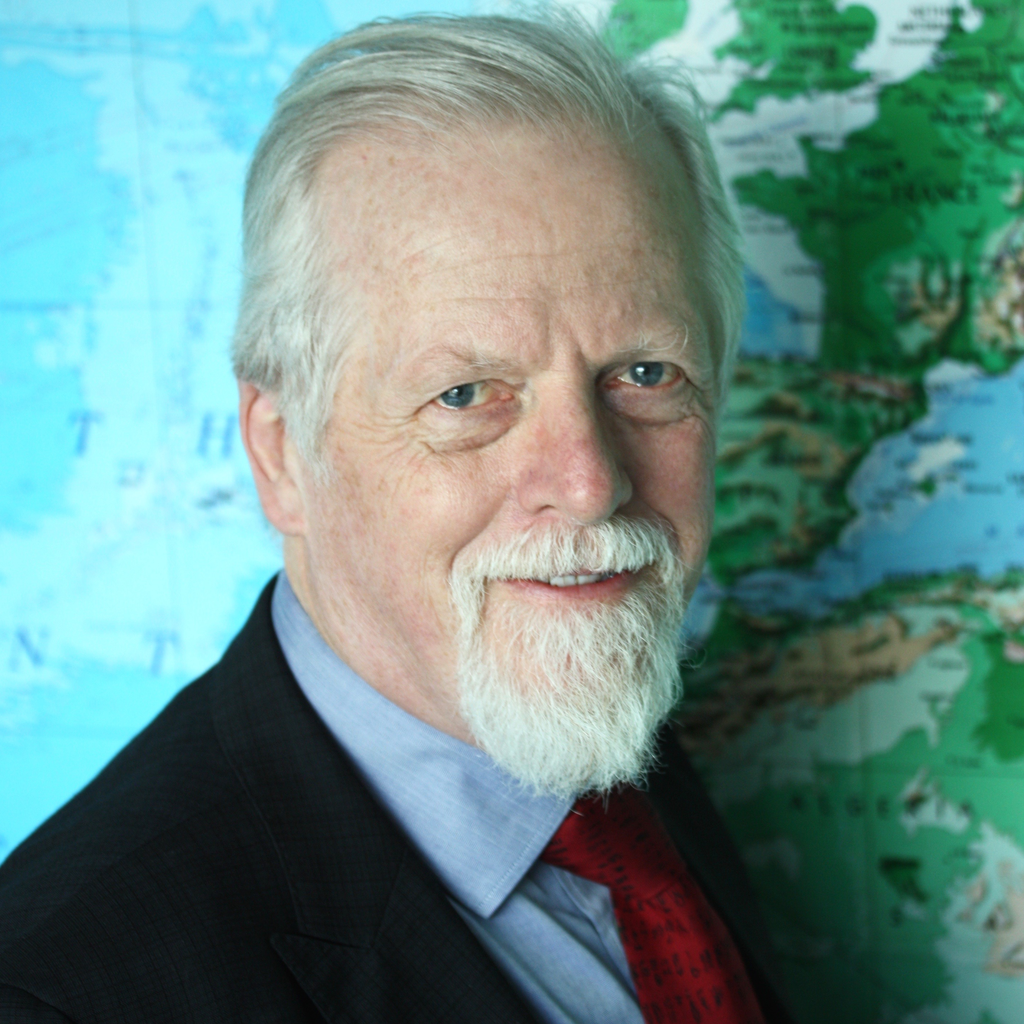
Richard advises campaigns, principally on issues related to Climate & Energy, including strategic litigation aimed at holding governments and corporations to account for violating the right to a healthy environment. He is a barrister (England & Wales, 1971) and also practised at the New York Bar (1982-2000) and served as lead counsel at the International Criminal Tribunal for the Former Yugoslavia (2007-2014). Throughout his career his practice has focused on major human rights litigation, environmental justice, domestic and international criminal law, and post-conflict resolution. He is a member of Garden Court Chambers, London.
Marianne Meijssen, Senior Legal Counsel Organisation
Attorney-at-law (advocaat, the Netherlands)

Marianne advises on organisational matters, focusing on corporate and commercial issues.
Before joining Greenpeace International, Marianne worked for several law firms, specialising in complex multi jurisdictional litigation. Marianne was admitted as an attorney to the Netherlands bar in 2012.
Marianne is an advocaat employed by Greenpeace International.*
Roos van der Poel, Legal Counsel Organisation
Attorney-at-law (advocaat, the Netherlands)

Roos advises on organisational matters, for example on contracting. She was admitted to the Dutch bar in 2012. Before joining Greenpeace, she worked at a top tier law firm in the Netherlands, focussing on commercial contracts and transactions with an IP focus and competition law related matters.
Roos is an advocaat employed by Greenpeace International.*
Robin de Vries, Associate Legal Counsel Organisation

Robin provides strategic and operational legal advice and legal support to the GPI. She joined Greenpeace International in July 2023 and is advising on compliance with applicable national and international law, as well as other guidelines, regulations and international trends, in order to protect and uphold GPI’s integrity, assets and reputation, and ability to take risks. Prior to joining Greenpeace International, Robin worked for several corporate law firms, where she was active on a diverse range of subjects.
Kasey Valente, Senior Legal Project Manager

Kasey works on legal projects including the defense of key legal cases and development of global legal strategies. Kasey manages the Greenpeace International Legal Internship Programme and the Greenpeace Legal Community of Practice, a network of lawyers and legal activists who share knowledge, resources, and strategies to advance environmental justice. Kasey is the central contact for all legal enquiries. Kasey holds a BA from the University of North Carolina at Wilmington and over 10 years experience in project management. Kasey is one of the Legal Unit project leads for the Movement Lawyering at Greenpeace project.
Carolina Calzolari Antonio, Legal Coordinator

Carolina supports the legal team with legal risk assessments, litigation, knowledge management, strategy coordination and advocacy efforts. She coordinates the Greenpeace Global Legal Community of Practice, a network of lawyers and legal activists who share knowledge, resources, and strategies to advance environmental justice, and serves as the central contact for all legal inquiries. Additionally, Carolina works on the Legal Unit’s Movement Lawyering at Greenpeace project team.
Prior to joining Greenpeace International, Carolina worked for public legal institutions, NGOs, and social enterprises, where her work included legal research, coordination of programs, and advocacy initiatives. She holds a Bachelor of Laws from Centro Universitário Católica de Santa Catarina and an LLM in Public International Law from Utrecht University. She is fluent in English, Portuguese, and Spanish.
* Marianne Meijssen and Michel Uiterwaal are advocates employed by Greenpeace International. This means that they act for Greenpeace International and also for the affiliated organisations in the Greenpeace network.
The advocates listed above have registered the following principal (and secondary) legal practice areas in the Netherlands Bar’s register of legal areas:
- Marianne Meijsen is registered for the principal legal practice area Litigation;
- Michel Uiterwaal is registered for the the principal legal practice area General Practice;
- Roos van der Poel is registered for the principal legal practice area Law of Obligations (verbintenissenrecht);
Based on this registration, they are each required to obtain ten training credits per calendar year in each registered principal legal practice area in accordance with the standards set by the Netherlands Bar.
Greenpeace and the Law
“Greenpeace International’s Legal Unit works tirelessly to promote the right to a clean, healthy and sustainable environment for present and future generations. We stand with rights defenders to protect freedom of expression and the right to protest. We use the power of the law to take back power from corporate polluters and hold greenwashing policymakers to account. We support bold actions to amplify the voices of peoples who have done the least to create climate and biodiversity crises, yet are those most affected. We deploy our legal toolkit to fight systemic injustice and hold environmental destroyers to account.” – Kristin Casper, General Counsel, Greenpeace International
Our strategic litigation team contributed to the Edward Elgar Research Handbook on Climate Change Litigation (2024) with a chapter about strategic litigation titled “Breaking the mould in the strategic design and implementation of climate litigation”
Strategic Litigation
Greenpeace’s global network of independent national and regional organisations are key players in proactive litigation worldwide to respond to environmental problems and human rights harms.
In the face of the continued expansion of fossil fuel exploration, extraction and production by the Norwegian State, on 15 June 2021, 6 individuals together with Nature and Youth and GP Nordic filed an application to the European Court of Human Rights (the Court) under Articles 2 (right to life), 8 (right to private and family life) and 13 (effective remedy) of the European Convention on Human Rights (the Convention), after exhausting domestic remedies. The individuals also filed an Article 14 (discrimination) claim based on age and birth cohort and, for three of the applicants, their identity as Indigenous people.
The case had been litigated since 2016 when Nature and Youth filed a lawsuit against the Norwegian Ministry of Petroleum and Energy for granting the 23rd licensing round for oil and gas drilling in new areas in the Barents Sea South and Barents Sea South East. The lawsuit argued that granting these licences violated the right to a healthy environment, the right to life and private and family life under the Convention and was incompatible with Norway’s commitments under the Paris Agreement and environmental law principles. Procedural law arguments were raised to show that in authorising the licences, the Parliament failed to take climate impacts into account (including greenhouse gas emissions resulting outside Norway after export). The Supreme Court found that there must be an assessment of climate impacts, including exported emissions, but that this could be done at a later stage. That, according to the applicants, also gives rise to a discrimination claim.
In December 2021, the Court communicated the case to the Norwegian State and asked key questions, including whether the postponement of the assessment of climate impacts was compatible with the Convention. The State responded in April 2022, citing the war in Ukraine as a pretext for the continued expansion of fossil fuel exploration, extraction and production. The applicants had an opportunity to further expand their arguments. The case has been adjourned (paused) until the Grand Chamber decides on three other climate cases (Verein Klimaseniorinnen Schweiz and Others v. Switzerland (application no. 53600/20) [see below], Carême v. France (application no. 7189/21) and Duarte Agostinho and Others v. Portugal and 32 Others (application no. 39371/20)).
Klimasøksmål website
In 2018, the Commission on Human Rights of the Philippines started hearing a petition seeking to hold the investor-owned “Carbon Majors” (oil, natural gas, coal and cement companies) accountable for contributing to global emissions of GHGs fuelling climate impacts resulting in human rights harms. This is the world’s first national human rights investigation of its kind, brought by a coalition of 14 organisations, including Greenpeace Southeast Asia-Philippines, along with Filipino farmers, fisherfolk, human rights advocates, typhoon survivors, artists and concerned citizens. The petition was filed after super typhoon Haiyan wreaked havoc in the Philippines in 2013 and is grounded in research linking a large share of global climate pollution to a small number of coal, oil, and gas and cement producers, known as the Carbon Majors.
The National Inquiry conducted by the Commission on Human Rights has become one of the most significant repositories of scientific, legal, and community evidence of fossil fuel industry’s responsibility for climate change impacts and human rights harms. The Commission held hearings throughout 2018 in the Philippines, New York City, and London as part of its investigation. It received various testimonies from community representatives, prominent climate scientists, and legal and policy experts. The evidence is available to the public on the websites of Greenpeace Southeast Asia-Philippines and the Commission on Human Rights of the Philippines.
On 6 May 2022, the Commission released its final report on its multi-year investigation into 47 investor-owned corporations for human rights violations resulting from the companies’ actions that caused, denied and exacerbated climate change. Among its key findings are: the Carbon Majors’ contributions to climate change are quantifiable and substantial; they knew of the harmful effects of their products since at least 1965; they engaged in wilful obfuscation and obstruction to prevent meaningful climate action; they could be held liable for all acts to obfuscate climate science, obstruct, delay or derail the global energy transition; and they have a corporate responsibility to do human rights due diligence and provide remediation.
The Climate Change & Human Rights Inquiry Archive – Greenpeace Philippines
In 2016, the KlimaSeniorinnen Schweiz (“Swiss Senior Women for Climate Protection”), supported by Greenpeace Switzerland, now representing more than 2000 women aged 64 and over, sent a formal legal complaint to the Swiss Government and three administrative bodies responsible for national climate policies. The senior women are challenging the government’s climate policies, highlighting heat waves that are putting their lives and health at risk. The authorities refused to rule on the request, so they appealed to the Federal Administrative Court. That court dismissed the case in December 2018 on the grounds that senior women were not more likely than other citizens to experience harmful effects of climate change – despite their increased incidence of death and acute health impacts during heat waves. They appealed to the Swiss Federal Supreme Court at the end of January 2019. In May 2020, the Swiss Supreme Court held that the plaintiffs’ asserted rights had not been affected with sufficient intensity, and that the remedy they seek must be achieved through political rather than legal means.
The KlimaSeniorinnen and 4 individual members filed an application to the European Court of Human Rights under articles 2 (right to life) and 8 (right to private and family life), 6 (right to a fair trial) and 13 (effective remedy). They face these serious impacts due to the Swiss State’s failures to reduce GHG emissions and to tackle dangerous climate change. They are already experiencing severe impacts on their health, well-being and dignity, and they face increased risks of more profound implications in the future. Switzerland is continuously and directly violating the Applicants’ rights by failing to adopt the necessary and appropriate measures available to protect the Applicants from the impacts and the risk of harm posed by dangerous climate change-induced heatwaves. Switzerland has also failed to protect and ensure the Applicants’ right of access to a court and to effective domestic remedies because its domestic courts have arbitrarily refused to consider their human rights demands.
In March 2021, the European Court of Human Rights (“ECtHR”) communicated the case and gave it priority status. It also accepted more than 20 third party interventions (amicus briefs) from them UN Human Rights Commissioner Michelle Bachelet and UN Special Rapporteurs. In April 2022 the Court “relinquished” the case to oral hearings before the ECtHR’s 17 judge Grand Chamber. This happens when a case “raises a serious question affecting the interpretation of the Convention.”. The case was heard by the Grand Chamber on 29 March 2023.
This is the first climate case heard by the ECtHR and its decision by that Court, expected in 2024, will impact the interpretation of human rights obligations in all 46 Member States of the Council of Europe, as well as beyond Europe due to the importance of the Court and the Convention.
Klimaseniorinnen website (English, German, Italian and French)
Fourteen youth and affected groups from various regions in Indonesia filed a complaint with the Indonesian National Human Rights Commission on July 14, 2022, claiming that the Indonesian government has violated their human rights by not taking necessary measures to prevent the effects of climate change.
The complaint alleges that the Indonesian government’s insufficient action on climate change has violated several rights under the Indonesian constitution, including the right to life and a good and healthy environment, the right to develop oneself through the fulfilment of basic needs, the right to food and water, the right to education, the right to work and earn a decent living, and children’s rights.
The complainants claim that the Indonesian government has violated their human rights by not taking necessary mitigation and adaptation measures to prevent temperature rises above 1.5 degrees. They argue that Indonesia still heavily depends on deforestation and fossil fuels, especially coal for economic growth, has inadequate emission reduction targets, allocates significant resources to support carbon-intensive industries, does not integrate adaptation planning into domestic policies and budgeting, fails to ensure that social protection mechanisms work to reduce vulnerability to disasters and climate-related stresses, and does not prioritise nature-based adaptation.
This case is significant not only because of its young plaintiffs but also because it highlights the responsibility of governments to protect their citizens’ human rights by taking necessary measures to prevent and minimise the effects of climate change. It also demonstrates the need for governments to transition to sustainable development and invest in nature-based adaptation to mitigate climate risks. This case may set a precedent for similar cases in other countries where governments are not taking sufficient action to address climate change.
Indonesian Youths and others v. Indonesia – Climate Change Litigation
In 2018, Greenpeace France, in collaboration with Notre Affaire à Tous, Oxfam France, and Fondation pour la Nature et l’Homme, filed a demande préalable (letter before action) as the first step in France’s first-ever climate lawsuit. Dubbed “L’Affaire du Siècle” (the trial of the century), the lawsuit claims that the French government’s inadequate steps to address the climate crisis and its failure to implement international, European, and national climate objectives breaches national and international law, including people’s human rights. Similar to the Swiss case, this lawsuit aims to align France’s climate laws and policies with the Paris Agreement, at a minimum. Within ten days of the letter, the groups’ appeal received more than 1.7 million signatures, demonstrating widespread public support for the case. Since the authorities refused to act as requested by the letter, the co-plaintiffs filed a case in the Administrative Court of Paris on 14 March 2019. On 16 March 2019, the day after the global school strike for climate protection, which mobilised more than 1.6 million young people around the world, 350,000 people marched in more than 200 cities in France in support of the case and to demand increased climate action from the government.
The lawsuit challenges the state’s inaction on climate change and failure to meet its own goals for reducing greenhouse gas emissions, increasing renewable energy, and limiting energy consumption. On 20 May 2019, the 4 NGOs filed their additional pleading in front of the Administrative Court. On 3 February 2021, in a landmark decision, the Paris Administrative Court held the French state liable for its failure to meet its own greenhouse gas emissions reduction targets. It is the first time the State’s responsibility in the climate crisis, because of its lack of action, is acknowledged by French justice.
On 14 October 2021, after giving the State some months to show it was meeting its own climate targets, the administrative court of Paris ordered the State to take immediate and concrete actions to comply with its commitments on cutting carbon emissions and repair the damages caused by its inaction by 31 December 2022. The court determined that France emitted 62 million extra tonnes of emissions from 2015-2018 and ordered France to subtract the emissions caused in excess of its legislative commitments from its current emissions budget.
On 14 June 2023, the plaintiffs re-filed a lawsuit to enforce the 2021 decision, calling for the the implementation of structural and systemic measures to reduce France’s GHG emissions, as well as a financial penalty of 1 billion euros to force it to act and information on the measures that France considers it has taken and that it has refused to transmit to the plaintiffs even though it is legally obliged to do so.
This case began in late spring 2020 and received positive results in early November 2020. The Mexican Center for Environmental Law (CEMDA) and Greenpeace Mexico have successfully challenged new federal decrees that limited the participation of renewable energy companies in the domestic market. It is a major victory against anti-renewable measures and helps secure the human right to affordable and accessible clean energy. Community-based renewable projects can help to combat the energy poverty that afflicts millions of households. In addition to the successful proceeding against a local energy secretariat Sener and electricity system operator Cenace obtaining a temporary suspension of parts of the energy policy, Greenpeace Mexico has initiated three additional injunction proceedings demanding the non-compliance of the intermediate targets of the NDC regarding the percentage of clean energies in the country’s power mix.
On 3 February 2021, four individual plaintiffs who live in the areas that are directly impacted by the simulated sea-level rise and storm surge, as well as Greenpeace East Asia and Environmental Jurists Association, filed a lawsuit against Taiwan’s Ministry of Economic Affairs (MOEA). The plaintiffs submit that the MOEA failed to exercise proper administrative discretion when it enacted the “Regulations Governing the Chartered Capacity on Electricity Consumption Agreements Which the Users Shall Install Renewable Energy Facilities for Exceeding a Certain Capacity” (Regulation for Large Power Consumers), in force since January 1st, 2021. Specifically, the plaintiffs argue that the Regulation for Large Power Consumers does not comply with its enabling law, the Renewable Energy Development Act, and that its clauses are insufficient to fulfill the 2025 renewable energy goals under the Renewable Energy Development Act. Therefore, the plaintiffs request the Taipei Administrative Court to order the MOEA and its Energy Bureau to amend the “Regulation for Large Power Consumers” in accordance with the Renewable Energy Development Act and the 2025 renewable energy goal. The filing of this case is a first in Taiwan and a breakthrough in citizen suits and climate litigation. The lawsuit is the first example of ordinary people in Taiwan using the power of strategic litigation to hold the government accountable for its climate inaction.
On 2 September 2021, Greenpeace Germany launched a letter announcing a lawsuit against Volkswagen[1], the second biggest global car manufacturer for failing to decarbonise the company in line with the 1.5°C goal agreed in the Paris Agreement. At the end of October 2021, VW rejected Greenpeace’s legal demand to reduce its CO2 emissions faster and to phase out internal combustion vehicles by 2030 at the latest. On 9 November 2021, the two executive directors of Greenpeace Germany and a climate activist launched a lawsuit demanding to end the production of climate-damaging internal combustion vehicles by 2030 at the latest and for VW to reduce its carbon footprint by 65% by 2030 at the latest. The lawsuit builds on the recent Shell victory in the Netherlands, paving the way for the next generation of corporate accountability for climate-damaging business models.
The lawsuit has been split up in two. Greenpeace Germany supports Ulf Allhof-Cramer, an organic farmer, who filed his case at the regional court in Detmold where his farm is located. Meanwhile, Clara Mayer, a young climate activist, as well as GP Germany’s two EDs as private citizens (since GP Germany was unable to sue as an organisation) filed their suit in Braunschweig (the regional court responsible for Wolfsburg where VW’s headquarters are located). In February 2023, both the Detmold District Court and the regional court of Braunschweig rejected the applications of the plaintiffs. Both cases are now in the process of being appealed.
The cases against Volkswagen are the first lawsuits launched after the successful Milieudefensie et al v Royal Dutch Shell decision against a non-fossil fuel major corporation, emphasising that decision’s statement that all business enterprises have human rights due diligence obligations in the climate context.
Find out more about the cases: VW lawsuit in court and Greenpeace files suit against Volkswagen
1Greenpeace Germany et al. v. Volkswagen AG. November 9th, 2021. Motion, Federal Constitutional Court.
Want to know more about strategic, human rights climate litigation? Check out act.gp/PeoplesGuide for a legal toolbox to hold your government accountable on climate inaction.
The People’s Guide is a useful tool for those considering whether to bring a human rights-based climate case against their government and build a parallel campaign in their fight for climate justice. The Guide should only be used as a stepping-stone in developing a comprehensive strategy.
Right to Protest
Greenpeace engages in confrontational, non-violent direct action to expose environmental crimes. These actions can sometimes lead to legal action against Greenpeace organisations and activists – volunteers committed to environmental protection. Courts across the world have recognised the legitimacy of Greenpeace actions and the right to engage in peaceful protest in democratic societies.
In the District Court of New South Wales, Australia, Judge Lantham exercised her discretion not to impose punishment in sentencing a case for trespass against 29 Greenpeace activists, who had graphically exposed the woeful security at a nuclear plant by penetrating it. Her Honour stated in her decision of 15 May 2002, that: “…The right to protest and the right to express publicly one’s political views, albeit by direct action, is one which is to be valued and protected in the context of modern democracy…”
In 2008, six Greenpeace UK activists were charged with criminal damage following an attempt to shut down the Kingsnorth coal-fired power station in Kent – by scaling the chimney and painting the Prime Minister’s name down the side. The jury returned a ‘not guilty’ verdict, accepting the activists’ defence that they were acting in order to defend property of a greater value from climate change, including everything from the polar ice caps to the tropical rainforests of the Amazon and the Congo basin. In 2009, plans to build a second coal-fired station at the site were shelved.
After activists briefly shut down 72 of Shell’s fuel stations in the Netherlands in 2012, in protest at the company’s plans to drill for oil in Arctic waters, Shell sought a court order banning any further actions on or near its premises. The Amsterdam District Court found that the action had met requirements of subsidiarity and proportionality, and rejected Shell’s demand. In doing so, it held that “the basic principle is that organisations such as Greenpeace are in principle free to take action and to make their views publicly known. The sole fact that such action causes inconvenience to the company targeted by the action – in this case, Shell – does not mean that such action is wrongful.”
In New Zealand in 2020, the Timaru District Court convicted but discharged four activists who had delayed a ship as part of an ultimately successful campaign against oil and gas company OMV’s hunt for fossil fuels in New Zealand. The judge told the activists that “in time, you may be referred to, or remembered, not as offenders, but as leaders in the same way as many advocates for women’s education and women’s suffrage were, in their time, seen as offenders and troublemakers, but are now seen as right-thinking leaders for change.“ Activists who blocked a tanker carrying Russian diesel were acquitted of aggravated trespass in 2022 by a UK court, with the judge ruling that not the protest, but “the unloading of the oil was the potential offence.” A Finnish court declined to impose a sentence on activists after a similar action against imports of coal.
The most high-profile legal dispute involving a Greenpeace action in recent decades arose in September 2013, when Russian forces detained the Arctic Sunrise and its crew of 30 and charged them with piracy, in response to a peaceful protest against oil drilling on the continental shelf in the Arctic. The Netherlands – flag State of the vessel – began arbitration proceedings against the Russian Federation, relying on a file of evidence supplied by Greenpeace International. In August 2015, the arbitral tribunal ruled in favour of the Netherlands. Its ruling clearly established the principle that there is a right to protest at sea. A settlement was eventually agreed between the Dutch and Russian governments. Meanwhile, the ‘Arctic 30’ also filed applications with the European Court of Human Rights, asserting that their right to liberty and to freedom of expression had been violated. In June 2023, the Court ruled that the Russian authorities had arbitrarily detained the Arctic 30 and violated their right to freedom of expression.
Freedom of Expression
On occasion, when our campaigning hits its target, governments or companies will seek to unreasonably restrict what we say or do. Greenpeace therefore regularly champions the right to free speech in its defence of the environment.
On occasion, when our campaigning hits its target, governments or companies will seek to unreasonably restrict what we say or do. Greenpeace therefore regularly champions the right to free speech in its defence of the environment.
Greenpeace organisations around the world have been targeted in recent years by Strategic Lawsuits Against Public Participation (SLAPPs) – lawsuits designed not to win on their merits, but to use the litigation process to drain resources and intimidate critics into silence. Two prominent examples are the astronomic claims filed by Canadian logging giant Resolute Forest Products and US pipeline giant Energy Transfer LP (ET) against Greenpeace USA, Greenpeace International and a number of individual staff members under the RICO Act, an anti-organised crime law in the USA. These attacks paved the way for the formation of the Protect the Protest anti-SLAPP coalition in 2018. In April 2020, most of Resolute Forest Products’ claim was thrown out and – after initially having sought CA $300m – it was instead ordered to pay almost $1 million to the Greenpeace defendants it had targeted, one of the highest monetary figures ever awarded under California’s anti-SLAPP statute. On 20 April 2023, the federal district court dismissed the remainder of Resolute’s lawsuit in a summary judgment. Energy Transfer’s $900m claim was similarly thrown out of federal court, but subsequently refiled in state court in North Dakota, where it continues.
Time and again, companies have tried to leverage trademark and copyright law to halt criticism in the form of parody or satire. For example, in 2002 the French nuclear fuel company Areva filed proceedings against Greenpeace France, alleging breach of its trademark in relation to the Greenpeace parody of the Areva logo that depicted the risks of the nuclear industry. In 2008, Cour de Cassation, France’s highest court, held in favour of Greenpeace France in declaring that the logo parody fell within the legitimate right of freedom of expression.
Since 2019, the Greenpeace International Legal Unit has been working with advocacy groups from across Europe to build the resilience of activists and other public watchdogs to SLAPPs and legal intimidation in Europe. Following a symposium on SLAPPs hosted by Greenpeace International in 2020, the Coalition Against SLAPPs in Europe (CASE) was formally launched in 2021. CASE works to advance anti-SLAPP solutions. It has successfully advocated for the tabling of an EU anti-SLAPP Directive and a Council of Europe Recommendation, as well as undertaking wide-ranging initiatives to delegitimise the use of SLAPPs and build the legal resilience of those targeted. Greenpeace organisations are also involved in anti-SLAPP coalitions at the national level, such as On Ne Se Taira Pas (We Will Not Be Silenced) – a coalition launched with the support of Greenpeace France.
International Environmental Law
Greenpeace is actively involved in lobbying for effective international environmental law to address global problems and has achieved significant successes, such as the involvement in the adoption of the UN General Assembly resolution imposing a moratorium on large-scale drift nets on the high seas and the Biosafety Protocol to the Convention on Biological Diversity, which controls the international trade in genetically modified organisms. Greenpeace also holds formal observer status at many international meetings where the fate of the planet is decided: the Convention on the International Trade in Endangered Species of Wild Fauna and Flora, the Commission for the Conservation of Antarctic Marine Living Resources, the International Whaling Commission, the United Nations Framework Convention on Climate Change and the Food and Agriculture Organisation of the United Nations, among others. Greenpeace also supports the development of other related areas of law. For example, Greenpeace International is presently participating on behalf of the Council of Europe’s Conference of INGOs in the CDDH-ENV drafting group on human rights and the environment, concerning protection of the human right to a clean, healthy, and sustainable environment.
